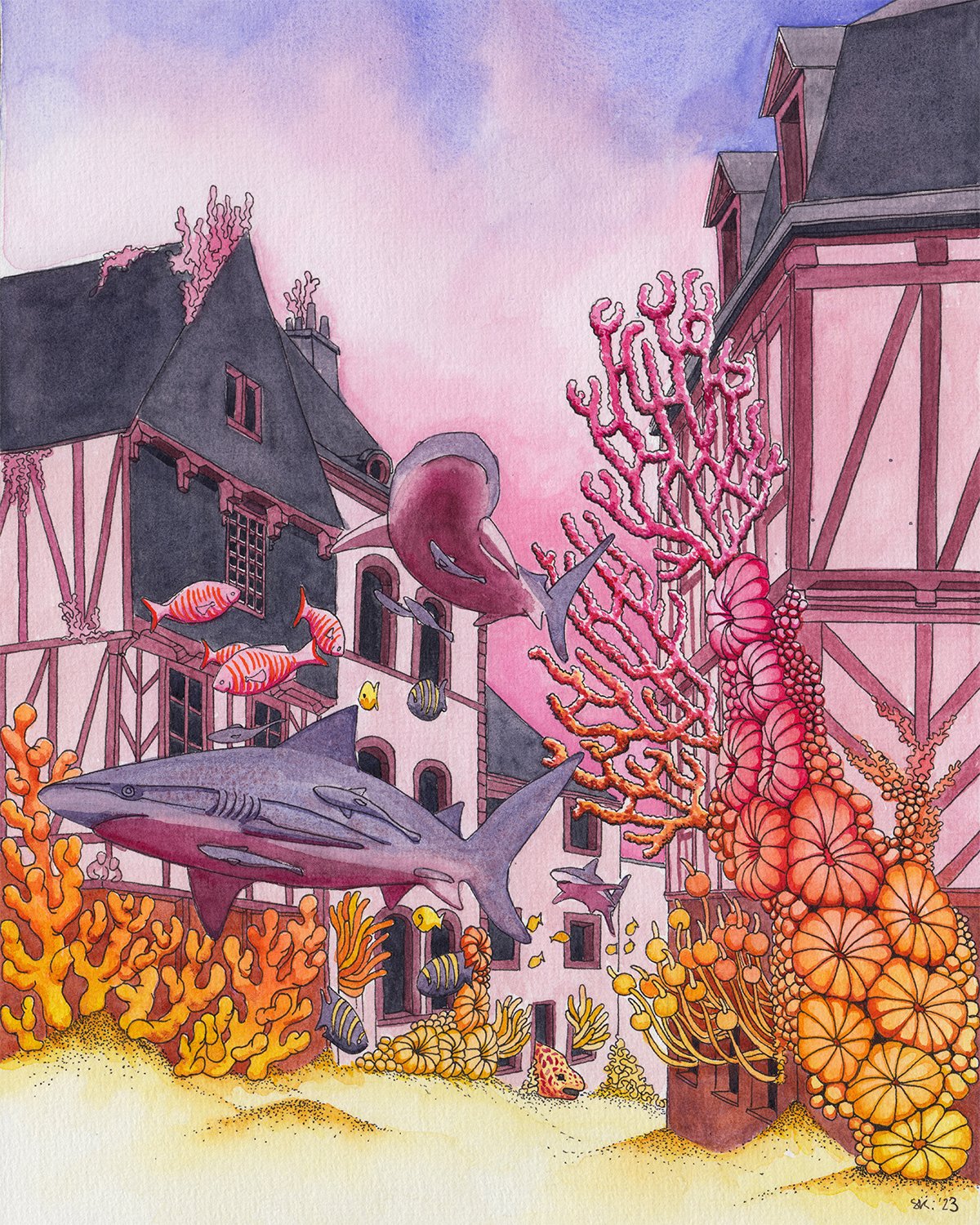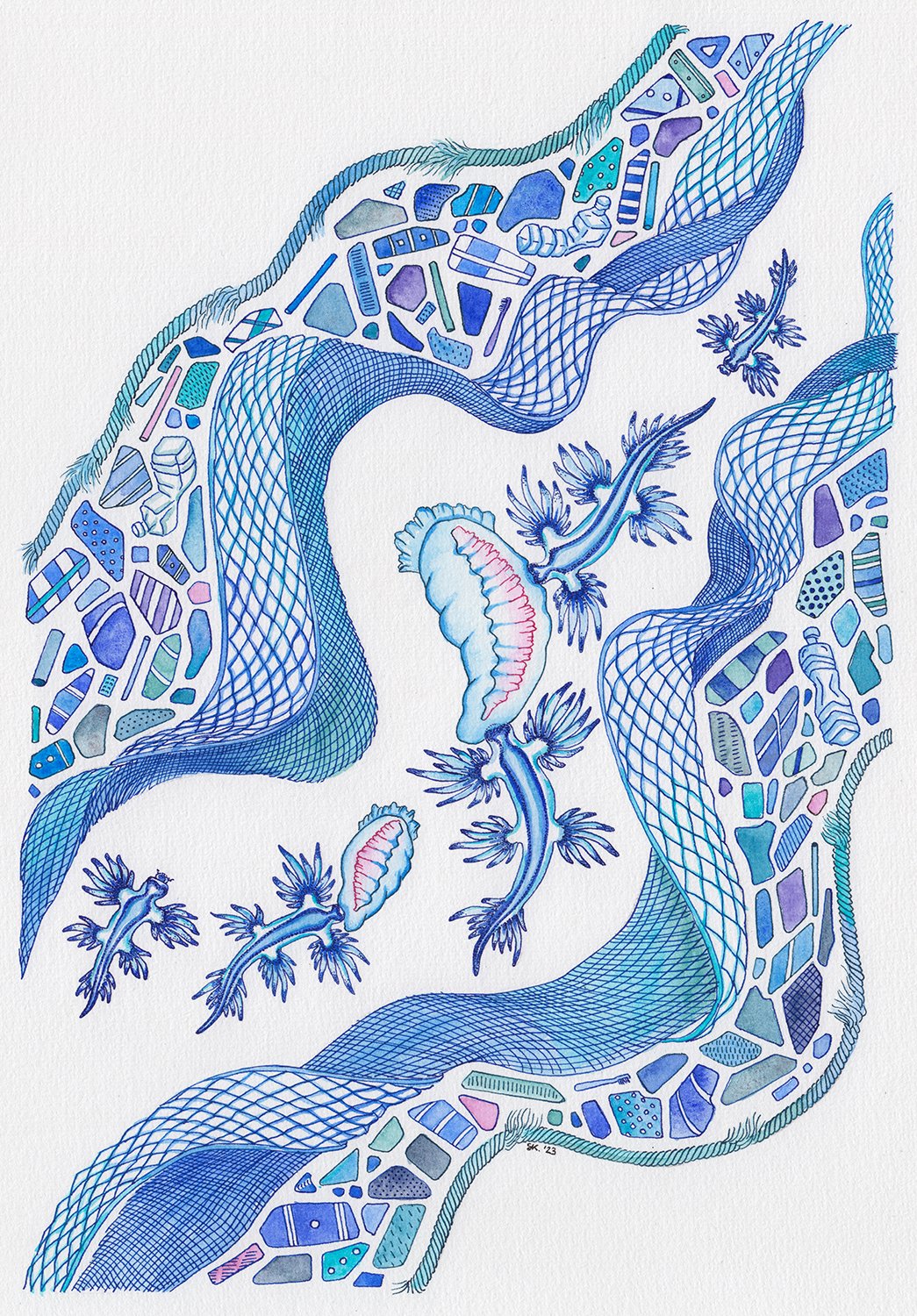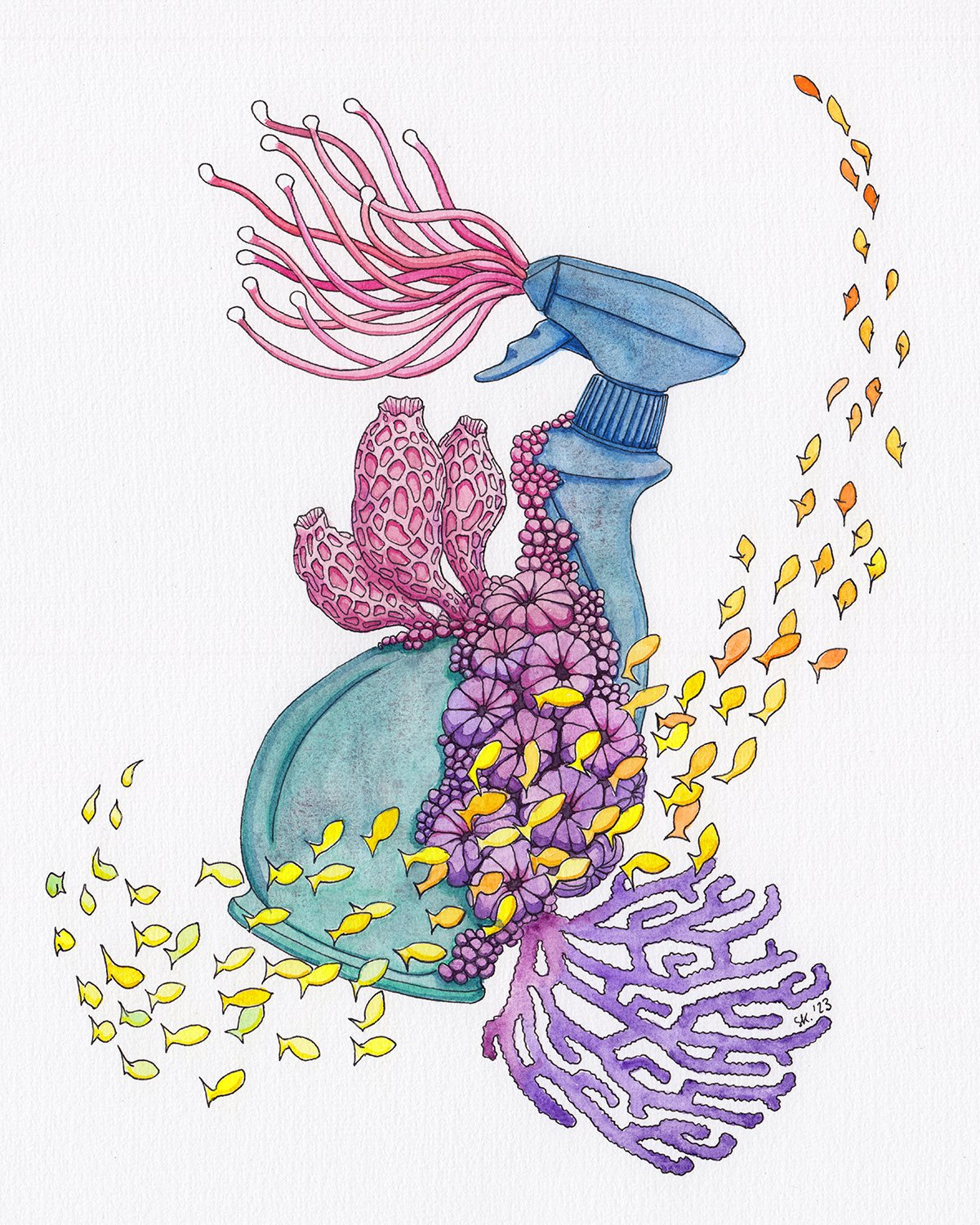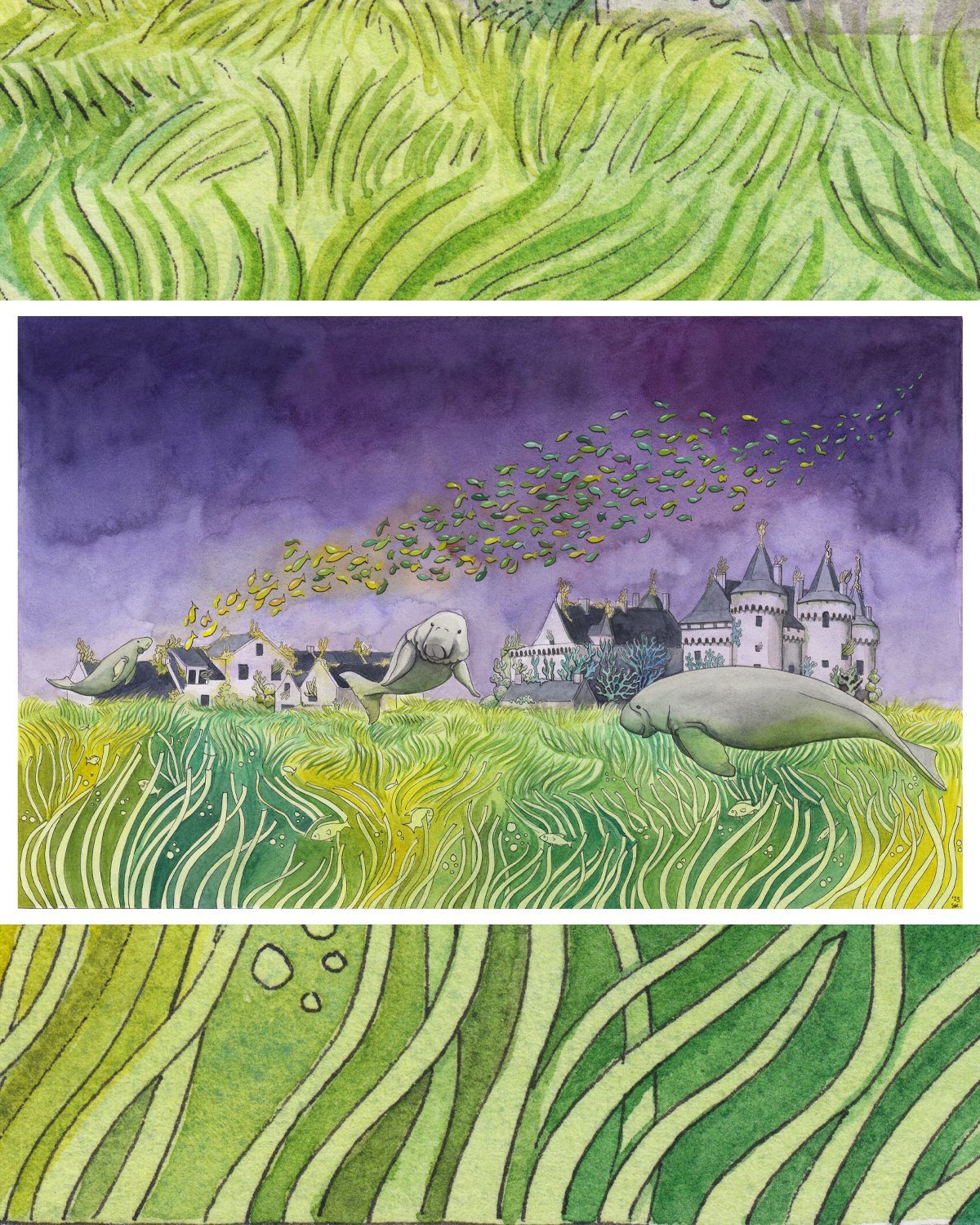For Planet Ocean
During June of 2023, I participated in ocean conservation awareness with the yearly challenge @forplanetocean along thirteen other artists:
@belowandbeyondart
@blackscatter
@emmalopesart
@iruksson
@jmsillustrates
@junoniaarts
@janinarossiter
@petitplat
@poppyli.art
@rachelbrooksart
@vegan.frank
@wildlife_erra
@yetiglesias
@zoeellison__
It was a participative challenge on instagram, with five prompts throughout the month of July.
Here my works and texts for each prompt:
1st of June 🐠 coral reef: Rainforests of the sea
I picked a city setting for this illustration, because cities are the rainforests of humans nowadays. On my work however, humankind is absent, letting space and recovery for the rest of nature.
Coral reefs are a very rich and diverse ecosystem, that is home to many species, friends and foes.
I was fortunate enough to snorkel over a coral reef a few months ago and did see a shark, so I wanted to add some to this painting.
Coral reefs are currently threatened by mainly two issues: global warming and the rise of acidity due to pollution.
Coral reefs are very sensitive to temperature changes and will lose their polyps, eventually bleaching.
Acidity is even worse as it's attacking the hard part of the coral, slowly dissolving it.
8th- 🌊 World Ocean Day: Blue mind
💀 Venomous sea dragons munching on Portuguese man-of-war surrounded by toxic human waste. 💀
Yeah. This one got pretty dark 🤷♀️
---
I had the idea for this one starting with the sea dragon, mainly because it's pretty and blue. Now sea dragons are interesting because they are highly venomous.
They basically keep all toxins from other beings they eat. That's also why should NOT touch them when you see one.
Sea dragons and Portuguese man-of-war are also surface dwellers.
And what else is human-made, toxic and dwells at the oceans surface? ...
The plastic continent! 🎉
Especially fishing nets which make up for the biggest plastic pollution.
As a friend would say "fun!" 😅🙈
And happy #worldoceanday 🌊
15 - 💙 Artivism: Protect What We Love
🌊 When Less is More 🌊
Coral reef on plastic spray bottle.
---
🌍 Everything we do has an impact on our surroundings and eventually back on us.
We've been experiencing higher temperatures in spring and summer all over Europe with draughts following and most groundwaters aren't able to keep up. It's not going to get better.
💪To keep it short, we need society to change drastically.
One really small thing you can do right away is to consume less, especially meat and animal products, but also transportation and electronical products. See what you consume and cut it in half.
🌿 Don't count on the "green energy transition", it never started and can't happen. Right now we simply consume more and more energy of all kinds every year and the "green energies" aren't replacing any of the fossil ones.
They actually need a lot of fossil energies to even exist... 🤦♀️
22- 🦑 Deep Sea: Mysterious Depths
☠️ Deep Sea Mining ☠️
The still picture of yesterday's reel.
⚠️ News flash ⚠️
Norway gave the green light to deep sea mining.
Tragic but sadly not surprising.
---
🌍 Deep sea mining is about sending machines deep down the ocean to gather polymetallic nodules that are made up of rare metals.
The issue is that those nodule gathering machines will destroy everything on their path.
The nodules are also the base of the ecosystems, corals and sponges grow on them, creating a living place for fishes, octopus, squids, worms, nudibranches...
👉 I'll keep it short:
1. The green energy transition is a myth. Green energies have not replaced fossil ones, they just got added on top of them. (We consume more and more energy every year - and of every kind)
2. Electricity and batteries aren't green. They require energy and rare metals that are difficult to obtain.
3. Pretending to destroy an entire ecosystem in order to obtain rare metals for batteries so we can do the *green energy transition* is green washing.
💪We need society to change at the core.
One really small thing you can do right away is to consume less, especially meat and animal products, but also transportation and electronical products. See what you consume and cut it in half.
Easy👍
29- 🌿 Seagrass: Planting a Future!
🌊🌿 Dugongs au château de Suscinio🌿🌊
Last prompt of this year's #ForPlanetOcean2023
art challenge!
Highlighting the importance of sea grass ecosystems and the important work of @projectseagrass who will be planting up to 10,000 seagrass seeds for this art event 🌿🌱
Seagrasses are the meadows of the ocean and I wanted to showcase that in this painting with grazing dugongs instead of cows. The background is from a picture I took of the castle at @domaine_de_suscinio which is closer to where I live.
Project Seagrass is an environmental charity devoted to the conservation of global seagrass ecosystems through research, community and action. Seagrasses are marine plants that live in shallow, sheltered areas around our coast. They provide a variety of essential ecosystems, including storing carbon, producing oxygen, stabilising our coastlines, improving the water quality and clarity of our oceans, and increasing ocean
biodiversity.
N.B.: 2023 was intense, so I didn’t have much time to blog, here one of those article I meant to write about! I published it back for the sake of chronology but wrote it on January 1st of 2024.
The paintings will be available at some point, but I’m keeping them for a local show here in Vannes. If interested, best to subscribe to my newsletter, so you’ll know when they will be available!




